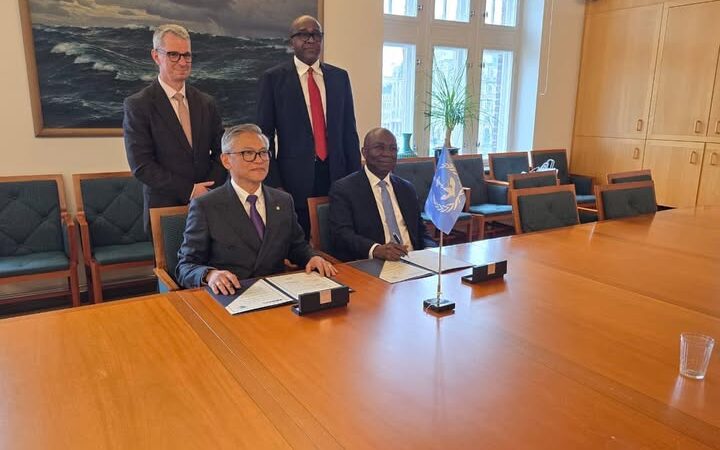“Englishnization” in Francophone Africa? Insights from “Women in Logistics-Africa”
 Christiane OHIN-TRAORÉ, Founder-President of WILA, and Steven J. Sacco of Sacco Global Consulting recently submitted a manuscript to Global Business Languages, a world-renown journal specializing in Languages for Specific Purposes (LSP).
Christiane OHIN-TRAORÉ, Founder-President of WILA, and Steven J. Sacco of Sacco Global Consulting recently submitted a manuscript to Global Business Languages, a world-renown journal specializing in Languages for Specific Purposes (LSP).
In their paper, Christiane and Steven describe the results of a study that measured the use of English and French among female managers and employees working in logistics and global supply chain management positions. For the study, they surveyed 104 WILA members, representing 79 companies and 9 Francophone African countries.
Christiane and  Steven found that English is highly valued among the vast majority of companies and is mostly used in exchanges between the French-speaking employees and their English-speaking clients and suppliers. French, however, remains the dominant workplace language used overall as the 104 French-speaking professionals communicate almost exclusively in French with co-workers and French-speaking clients and suppliers.
Steven found that English is highly valued among the vast majority of companies and is mostly used in exchanges between the French-speaking employees and their English-speaking clients and suppliers. French, however, remains the dominant workplace language used overall as the 104 French-speaking professionals communicate almost exclusively in French with co-workers and French-speaking clients and suppliers.
In professional circles, Africa is largely ignored in the field of workplace language use despite experiencing explosive economic growth that will continue unabated into the next decades. French president Emmanuel Macron calls Africa “the continent of the future,” a fact WILA members have known for over a decade.
“Englishnization,” a term coined by Rakuten CEO Hiroshi Mikitani, is the imposition of a single-language policy within a company or corporation. Mikitani’s goal was to get his employees worldwide to work in English, waving the standard “all English, all the time.” Even in Japan, the home of Rakuten, Japanese native speakers were compelled to work with each other in English.
Global companies from nearly all the major industries—Audi, Atos, DB, IBM, Lufthansa, Microsoft, Nokia, Nestle, Samsung, SAP are already requiring employees to use English “all the time.” Despite the growing importance of English, the authors found that French continues to be the number one language used in logistics and supply chain management in Francophone Africa. Unlike Europe and Asia, “Englishnization” has not taken hold in Francophone Africa and probably won’t in our lifetime.
The authors predict that the use of English will increase, even surpass French in the next decade or two, but the multilingual workplace will most likely continue to exist. Unconcerned with Mikitani’s English-language mandate at Rakuten, French-speaking customers in Francophone Africa will continue to purchase goods and services in French.
Christiane and Steven are currently asking WILA members to complete a questionnaire on their English language history. Their goal is to provide innovative English instruction for interested WILA members. The stronger our English skills, the more numerous our future pay raises and job promotions!






